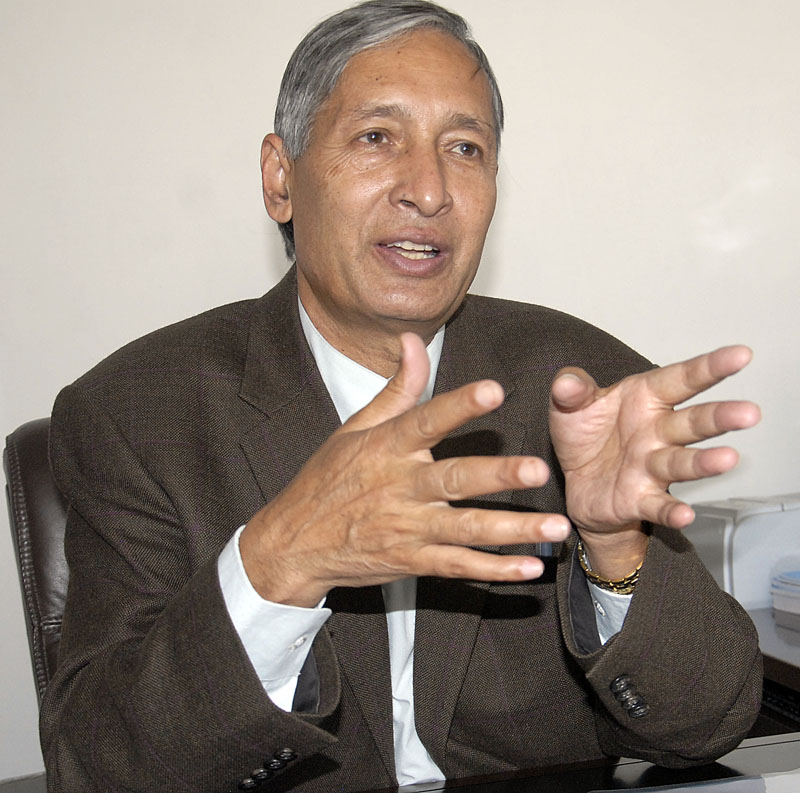White paper a prescription to economic ills: FinMin
Kathmandu, April 5
Finance Minister Yubaraj Khatiwada has said that the white paper is a prescription to solve the problems of the economy, and the government's policies, programmes and budget will be aligned accordingly to address the problems highlighted in the white paper.
He also said that private investment will be motivated towards the drivers of the economic growth, that are hydro electricity, agriculture and tourism.
Following criticism from the opposition that the finance minister is overly focused on the gloomy side of the economy, Khatiwada said that there were numerous efforts made in the past to keep the economy in order. “But what is right should not be diagnosed, only the wrong needs to be diagnosed,” he said.
The government will continue the good practices of the past and initiate necessary reforms to take the economy forward. “While talking about self-sustained economy, we do not mean that we will produce everything within the country,” Khatiwada stated. “However, we will give priority to security in four sectors - food, health, energy and jobs.”
“We are about to be self-sufficient in production of construction materials like cement and iron rods, among others, and we want the tourism sector to take maximum advantage of the value addition in domestic resources.”
The finance minister further said that when the economy is in a critical condition and growth is low, the state has to work in many sectors, but that it does not mean the government is in favour of controlled economy.
The central government will drop the development projects initiated under the ‘resource guarantee' as much as possible. Regarding the privatisation of the public enterprises, the government's orientation is towards divesting the share of the government in trading-related public enterprises, he stated. “But while doing so, we will ensure the privatised enterprises will sustain for a long time.”
Finance Minister Khatiwada added that the private sector also has responsibilities towards the consumer (society) and the environment.
On his step towards reforms in the country's tax system, Khatiwada said that the government will timely revise the reference price of the customs and will not allow traders to import goods that are cheaper ignoring consumer's health, environment and other relevant factors.
“We will make reforms in the customs regime and for tax audits. Cross-verification of financial statements presented to banks to avail loans and presented at the tax office will be the immediate reform measures in tax. We will not increase the tax rate, but definitely expand the base,” the finance minister said.
“Improving governance in the tax administration will also be initiated and the online system in tax filing will ensure that the tax administration will only be dealing with the documents and not the taxpayer, which will help decrease chances of corruption.”
He also vowed to end the horizontal and vertical gap in tax enforcement.
On the other hand, to ensure the quality of imports, the government will bring the anti-dumping law as early as possible, as per the finance minister.
The government could go on viability gap funding in infrastructure projects if the private sector is willing to initiate infrastructure projects as the infrastructure bottleneck is the major constraint to unleash the economic potential of the country.
Khatiwada also spoke on the positive aspects of the economy.
“The basic fundamentals of the economy are safe despite the long insurgency and transition. Social sector investment has started providing returns like the Upper Tamakoshi Hydropower Project and Melamchi Water Supply project, among others,” he mentioned. “Our social indicators are strong and reserves in the financial system are also in a sound position.”
Khatiwada further said that the national savings is insufficient to cater to the demand of resources in both the public and private sectors to spur growth.






